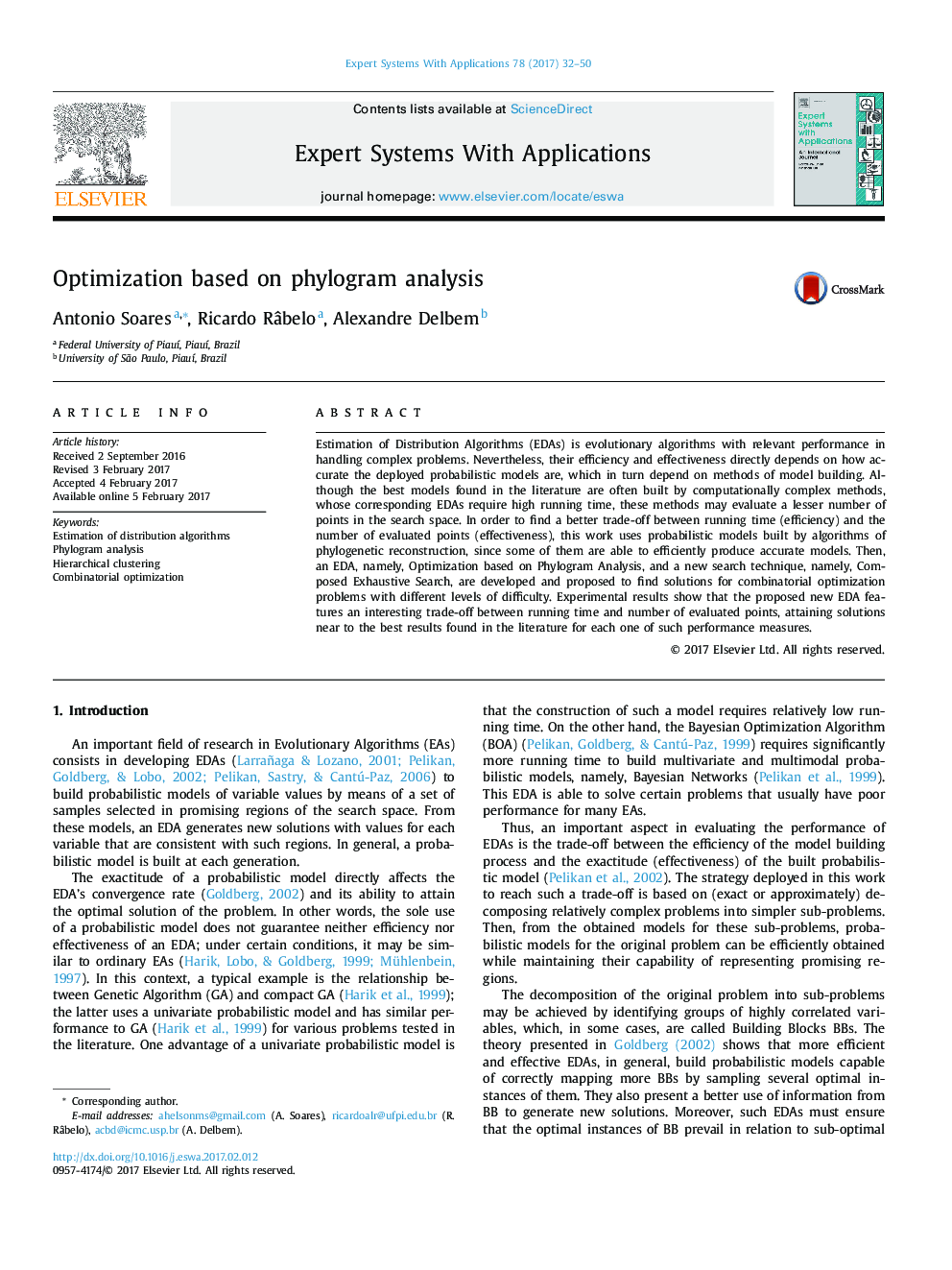| Article ID | Journal | Published Year | Pages | File Type |
|---|---|---|---|---|
| 4943578 | Expert Systems with Applications | 2017 | 19 Pages |
Abstract
Estimation of Distribution Algorithms (EDAs) is evolutionary algorithms with relevant performance in handling complex problems. Nevertheless, their efficiency and effectiveness directly depends on how accurate the deployed probabilistic models are, which in turn depend on methods of model building. Although the best models found in the literature are often built by computationally complex methods, whose corresponding EDAs require high running time, these methods may evaluate a lesser number of points in the search space. In order to find a better trade-off between running time (efficiency) and the number of evaluated points (effectiveness), this work uses probabilistic models built by algorithms of phylogenetic reconstruction, since some of them are able to efficiently produce accurate models. Then, an EDA, namely, Optimization based on Phylogram Analysis, and a new search technique, namely, Composed Exhaustive Search, are developed and proposed to find solutions for combinatorial optimization problems with different levels of difficulty. Experimental results show that the proposed new EDA features an interesting trade-off between running time and number of evaluated points, attaining solutions near to the best results found in the literature for each one of such performance measures.
Related Topics
Physical Sciences and Engineering
Computer Science
Artificial Intelligence
Authors
Antonio Soares, Ricardo Râbelo, Alexandre Delbem,
